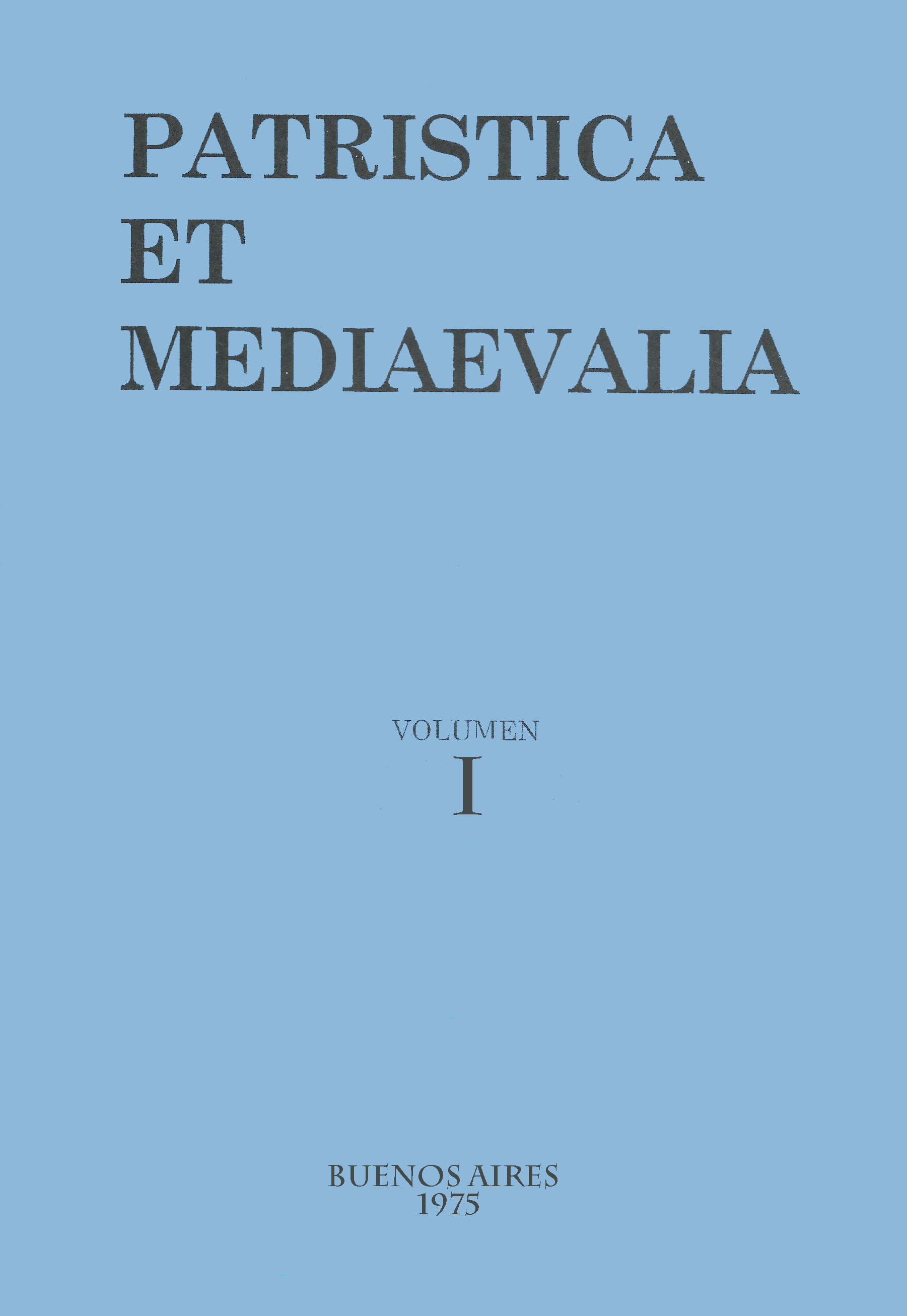The union between the separate intellect and the individuals, according to Siger of Brabant
Abstract
When presenting the doctrines of Sigerio de Bravante it is important to determine what is the most accurate starting point in regard to the tendencies of his philosophy. Fortunately, following Aristotle and Averroes, Sigerio is sufficiently explicit in the method he applies to the study of the nature of the soul: scire actiones animae prius est apud nos quam scire eius substantiam. Consequently, a complete exposition of the noetic of the Brabantine master should first expose the act of intellection, then the nature of the intellectual principle required by that operation, and finally the mode of union between that intellectual principle and the body, the contribution of which was revealed to be necessary in analyzing the intellectual act. We believe that this is the order that best respects the profound orientation of the thought of Sigerio, who first of all wanted to be faithful to the principles of Aristotle, without being intimidated by the consequences that, derived from those principles, seem to contradict daily experience. Like Averroes, only after having established the nature of the intellect will Siger attempt to explain the union of that principle with each man. A good part of his doctrine is devoted to explaining how such a union takes place. But this part of his noetic, however fundamental it may be, is second in the order of demonstration. Since in this work we wish to set forth the Sigerian doctrine of the union between the single intellect and individuals, it will be necessary, if we are to be faithful to the scheme already indicated, to give us a brief panorama of the principal theses that Siger held concerning the activity and nature of the intellect. For methodological reasons we must reduce ourselves to what we call the “first Sigerian Noetic”, that is, the one exposed in his Quaestiones in tertium De anima.Downloads
References
Bazán, B. C. (1967). Autour de la controverse sur la nature de l’âme au XIIIe siècle, Les ‘Quaestiones in De anima’ du ms. Paris Nat. Lat. 16.170. Thèse présentée en vue de l’obtention du grade de docteur en philosophie. Louvain.
Bazán, B. C. (1969). Pluralisme de formes ou dualisme de substances? Revue Philosophique de Louvain, 67, 30-73.
Bazán, B. C. (1971). La noétique de Siger de Brabant. Louvain: Institut d’Études Médiévales (reedición 2016. Paris: Vrin).
Bazán, B. C. (1972). La noética de Averroes. Philosophia, 38, 19-49.
Bazán, B. C. (1973). La etapa apolítica de la psicología peripatética. Cuadernos de Filosofía, 19, 61-89.
Bazán, B. C. (1973). La eternidad y contingencia del intelecto en Sigerio de Brabante. Philosophie, 39, 63-84.
Bazán, B. C. (1973). L’authenticité du ‘De intellectu’ attribué à Alexandre d’Aphrodise. Revue Philosophique de Louvain, 71, 468-487.
Bazán, B. C. (1974). Le dialogue philosophique entre Siger de Brabant et Thomas d’Aquin. Revue Philosophique de Louvain, 72, 53-155.
Bazán, B. C. (1979). Averroes y Sigerio de Brabante: La noción de ‘intellectum speculativum’. En Actas del V Congreso Internacional de Filosofía Medieval, vol. 1. Madrid: Nacional, 541-549.
Da Palma Campania, G. (1955). La dottrina sull’unità dell’intelletto in Sigieri di Brabante (Il pensiero medievale, V). Padova: CEDAM.
Gilson, E. (1949). Introduction à l’étude de saint Augustin. Paris: Vrin.
Gilson, E. (1951). El ser y la Esencia. Buenos Aires: Empecé.
Nardi, B. (1960). Studi di filosofia medioevale. Roma: Storia e letteratura.
Van Steenberghen, F. (1942). Siger de Brabant d’après ses oeuvres inédites (Les Philosophes Belges, XIII, t. II). Louvain: Editions de l’Institut supérieur de Philosophie.
Van Steenberghen, F. (1966). La philosophie au XIIIe siècle (Philosophies médiévaux, IX). Louvain: Publications universitaires; Paris: Béatrice-Nauwelaerts.
Zavalloni, R. (1951). Richard de Mediavilla et la controverse sur la pluralité des formes (Philosophes Médiévaux, II). Louvain: Éditions de l’institut supérieur de philosophie.
1. The authors who publish in this magazine accept the following conditions:
-
They retain the copyright and grant to the magazine the right of the first publication, with the work registered under the Attribution-ShareAlike 4.0 International License that allows third parties to use what is published as long as they mention the authorship of the work and the first publication in this magazine.
-
They can make other independent and additional contractual agreements for the non-exclusive distribution of the version of the article published in this magazine (eg. include it in an institutional repository or publish it in a book) provided that they clearly indicate that the work was first published in this journal.
-
They are allowed and recommended to publish their work on the Internet (for example on institutional or personal pages).
2. AutoArchive Conditions. Authors are allowed and encouraged to distribute post-print electronic versions of their manuscripts because it promotes their circulation, a possible increase of quotation and a major reach among the Academic community. Color RoMEO: blue.













